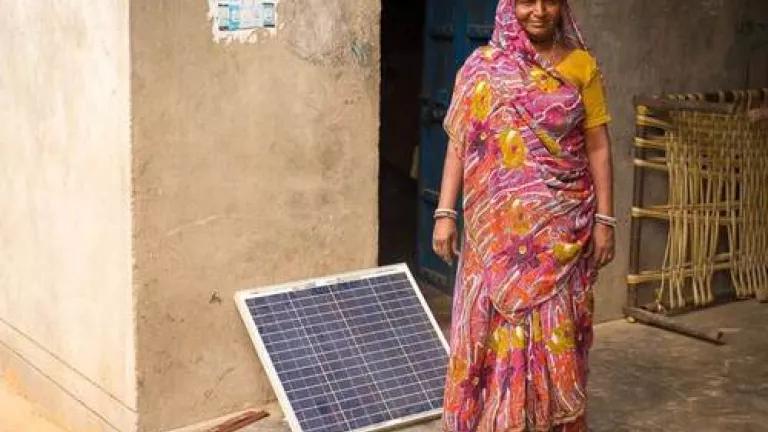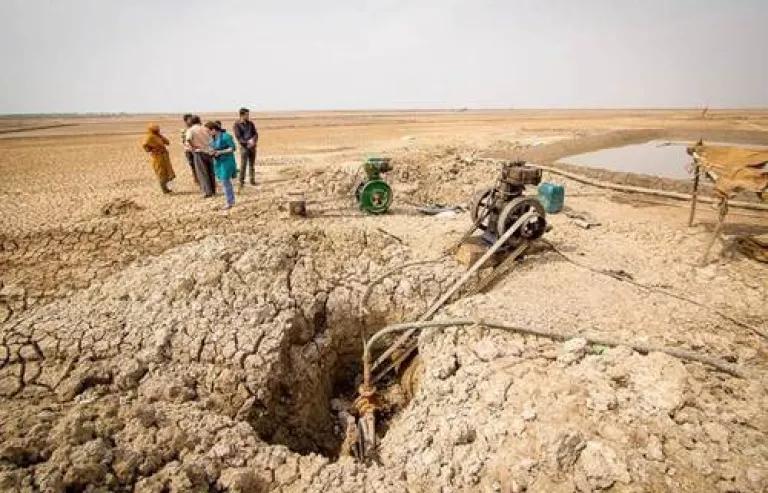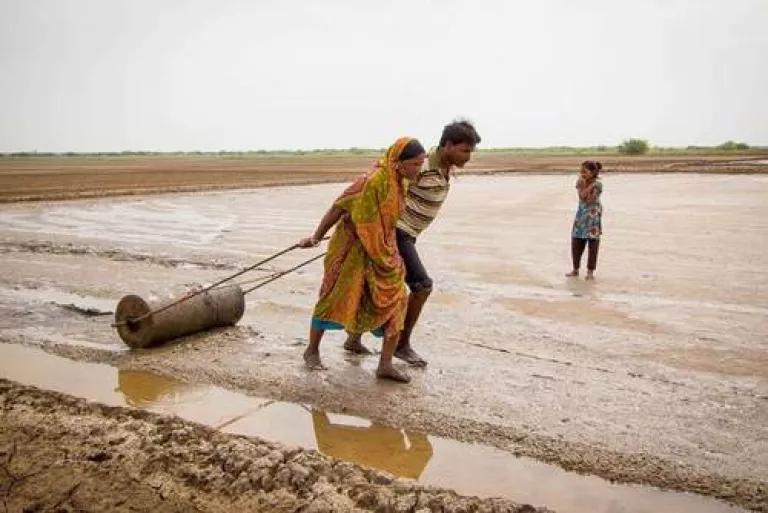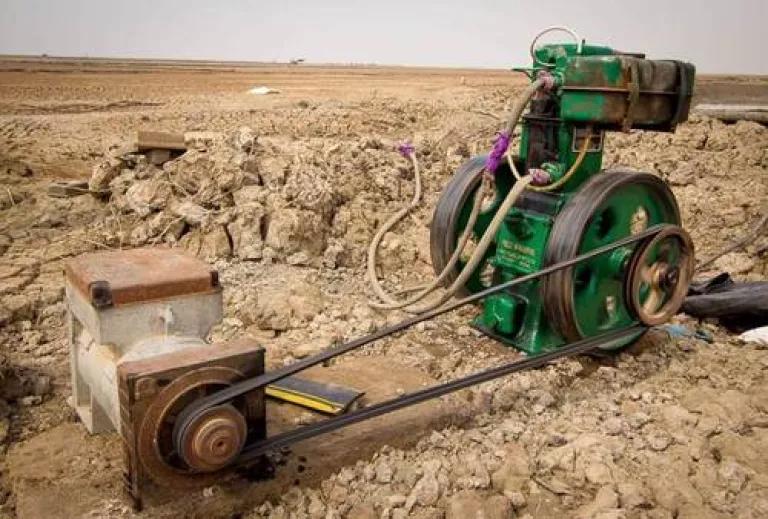Will India's First Renewable Energy Financing Summit Deliver Solutions to Improve the Livelihoods of India's Rural Salt-Pan Farmers?

On Sunday, Prime Minister Narendra Modi will inaugurate RE-Invest 2015, the first major platform for investment in India's burgeoning solar energy market in New Delhi. With over 1,000 delegates, including luminaries, such as Michael Bloomberg, Suresh Prabhu and Rajendra Pachauri, the conference aims to connect the global investment with Indian renewable energy stakeholders. Strong government programs, such as RE-Invest are certainly critical to achieving India's goal of 100 gigawatts (GW) of solar energy by 2022.
However, during the heady sessions at RE-Invest, the investment discussions also need to focus on increasing energy access to the over 300 million people who still lack access to a reliable electricity source.
Shown here: Salt farmer and SEWA member Bhavnaben. Her family was one of the first few farmers to pilot use of a solar pumping system for salt production. The family used savings on diesel costs made possible by solar energy to send their children to a private school. (Photo by Bhaskar Deol)
Solar energy is already shedding some light towards improving the difficult lives of rural communities by increasing clean energy access, and, even those at the lower levels of poverty--the salt-pan (salt flat) workers of the scorching hot Surendranagar District of Gujarat. Financing - the main focus of RE-Invest - remains a major barrier to providing clean energy access in these rural communities.

Shown here: A diesel engine powered mechanical pump. Farmers spend more of their yearly earnings on purchasing diesel to power their pumps for the next season. This leaves little for farmers to uplift their economic status. (Photo by Bhaskar Deol)
To provide greater focus on clean energy financing, we are highlighting our research with the Self Employed Women's Association (SEWA) to emphasize the urgent need for financing solutions to provide clean energy access to those who need it the most, and who are often excluded from the broader clean energy and climate change debate.
In the sun-drenched western Indian desert of Gujarat, which provides roughly 70% of India's salt, NRDC is partnering with SEWA to increase off-grid energy access to clean energy and improve the lives of salt-pan farmers working in salt flats. For years, without access to the energy grid, the salt-pan workers have been using diesel-powered generator pumps to draw brine from the ground and then dry it in the sun. As the price of diesel has risen, the farmers have been spending an increasing share of their small earnings to run the pumps. SEWA has undertaken a pilot to provide clean energy to power the pumps via a solar panel mounted near the pumps, giving the salt-pan farmers an opportunity to save a lot of energy and costs. Together, NRDC and SEWA are now researching the benefits and payback periods from switching to clean energy.

Shown here: Salt farmers Kirtiben and Narayanbhai. Salt production is a laborious process requiring hard work to prepare the salt flats for brine pumped using diesel-powered pumps. With greater savings, these farmers can improve their economic status and the technology they use. (Photo by Bhaskar Deol)
We are also exploring viable financing models, ways to make the pumps more energy efficient, and ways to make sure communities have the information and training they need. Increasing access to credit and solar power subsidies through better financing options and better dissemination of information about available programs is critical to expanding clean energy access in remote communities. Improvements to the system can also come from increased energy efficiency in salt mining pumps as well as additional solar panels. By demonstrating the potential of clean energy, and by overcoming some of the financing and policy challenges that are keeping energy efficiency and solar energy out of the salt-pans, India's rural communities are one step closer to a future marked by clean, renewable energy as a means of sustaining and improving livelihoods.
The discussions and outcomes at RE-Invest could provide a major opportunity to develop financing solutions to transform energy use in the salt flats to clean energy. Many of the solutions are at our fingertips in energy efficiency and renewable energy, but we need to move faster and smarter to get these solutions in place. And in India, where so many lack reliable energy access and the basic needs that electricity provides, it is crucial that we find ways to move forward with clean energy solutions suited to the realities of the communities in need.

Shown here: A diesel engine electricity-based generator. It is crucial to find ways to move forward with clean energy solutions and away from fossil fuels to improve the livelihoods of communities in need. (Photo by Bhaskar Deol)
